Mountain biking vs road biking: How are they different?
Both disciplines are awesome but what are the differences and which is better?
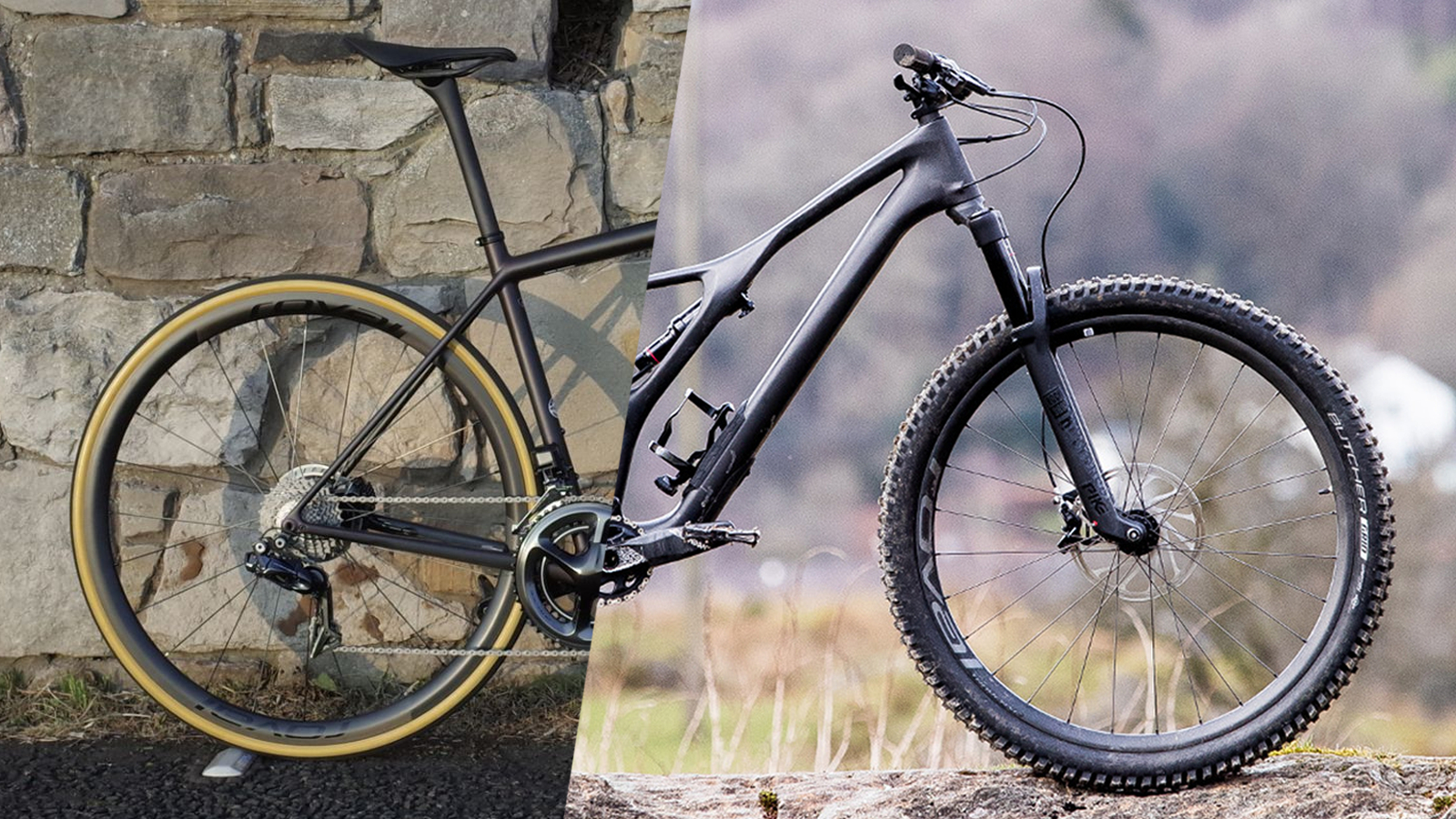
You’re wondering whether to take up mountain biking or road biking - or maybe you’re out doing one, and a voice in your head is thinking maybe you should be doing the other.
Have no fear. Both disciplines are awesome, but we’re here to clear things up. What are the similarities, what are the differences, and most importantly, which one is best?
Some ground rules first. Road biking covers everything from commuting to grand tour racing, and the best mountain bikes roll their knobbies all the way from gravel roads to freeride mountain biking like the Red Bull Rampage. Our complex algorithm will take literally everything into account.
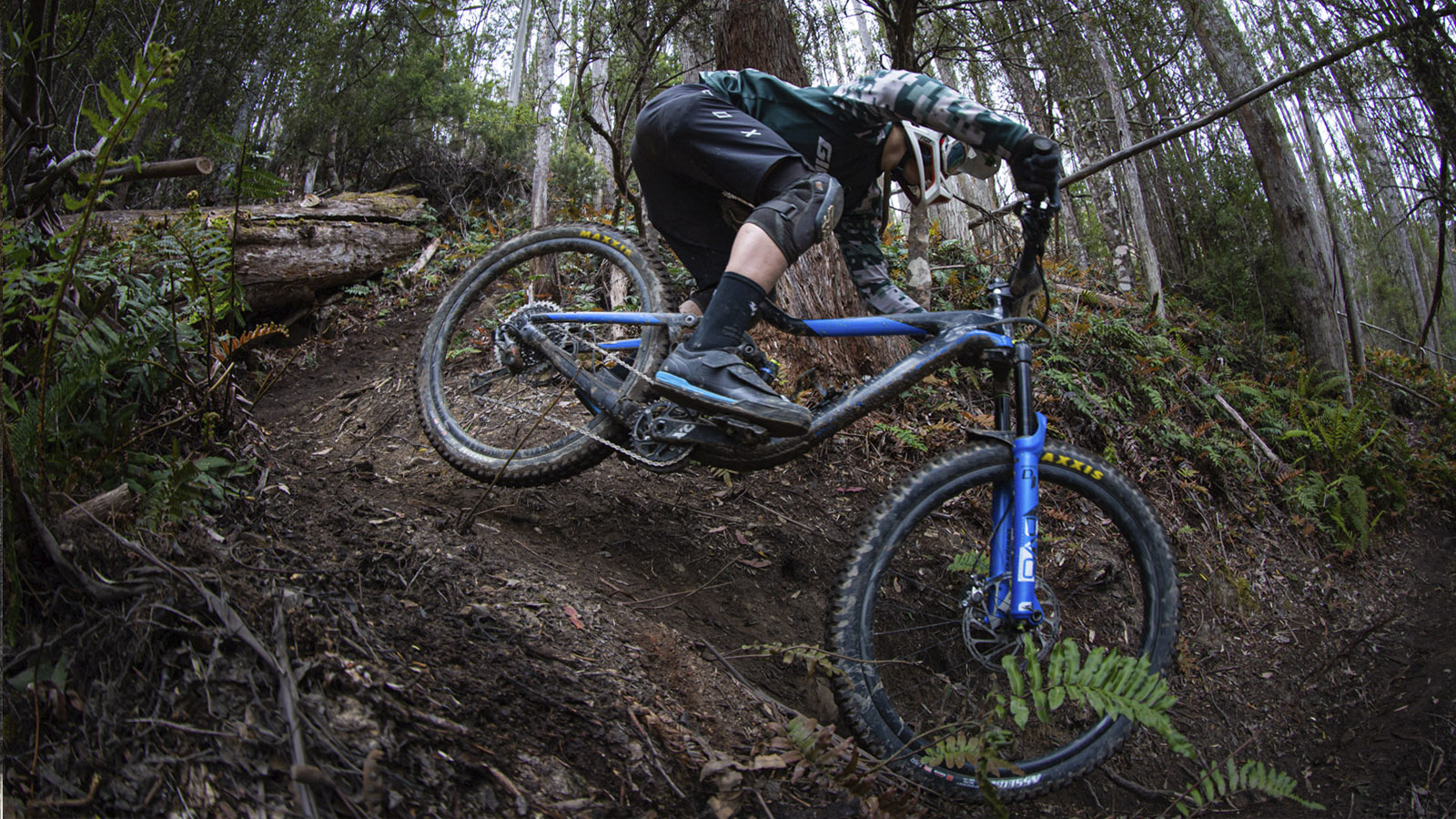
Skills
Road riding skills are mostly about survival: avoiding half-asleep drivers, car doors, slick drain covers, and if you’re racing, being 10cm away from another rider on all sides and never being allowed to dab your brakes.
On the other hand, mountain bike skills are about fun - going faster, flowy-er, and jumpier. And survival too.
Luckily both disciplines really need no skill to get started other than just getting out of the door and being able to pedal. A lot of the skills simply come by doing it more.
Winner: Mountain biking. Most of the pleasures of road riding don’t need a whiff of skill. But every time you go off-road there’s a smorgasbord of skills you’ll be able to discover or hone.
Fitness
As with skills, you don’t need any fitness to start enjoying the magic of cycling and the pleasure of being out. And as with skills, you’ll be amazed at how your fitness builds just by being out.
Fitness definitely enhances the pure pleasures of road riding though. On a road bike, there’s an almost scientific delight in being able to whizz up a hill, beat a Strava time or reach some far-flung place that’s a few miles further than you’ve been before. And the playfulness and fluidity that come with fitness are on tap all the time on the tarmac.
On a mountain bike, fitness also brings everything more alive, either for turbocharging your skills for clearing obstacles or smashing climbs. Another benefit of mountain bike fitness is being able to pedal for longer, more easily. But with mountain biking, there’s also more opportunity to have a brilliant session even if you’re not at your cardio best, thanks to things like uplifts, gravity, hanging out and just the general messing about nature of MTBing.
Winner: Road biking. For the liveliness that fitness brings to a ride, and the fact it’s easier to get fitter quicker on a road bike.
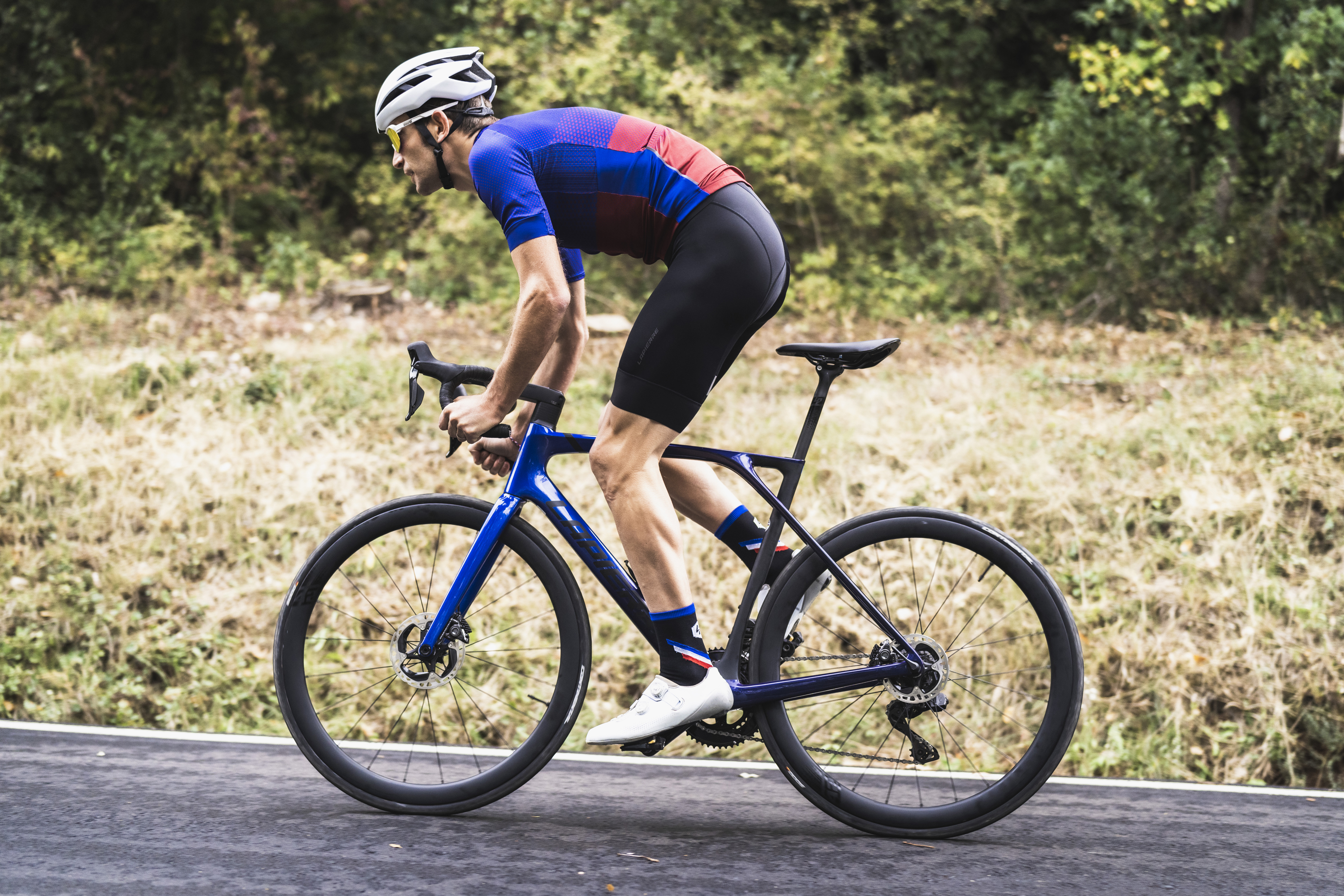
Adrenaline
Mountain biking totally wins for the number of ‘I could have stacked that’ moments and even a humble blue route can be a buzz at speed.
Both types of riding give you the magic adrenaline of just being out there in the elements at any time of year, the buzz of tussling to keep up with mates or trying to drop them, and that special something of being in harmony with a machine and the landscape.
And if you’re racing, then both are perfect for an adrenaline fix from the moment you wake up, even if road racing can occasionally lapse into snooze-fests controlled by a lazy pack in a way that perhaps mountain biking doesn’t.
Winner: Mountain biking. Because of dirt, rocks, jumps, and drops.
Variety
Mountain biking is as varied as the landscape, and you can go from kid-friendly country parks to bermy bike parks to the wildest wastelands. Disciplines within mountain biking are pretty broad, from mellow cross-country mountain biking to hardcore downhill mountain biking. You can be fully loaded for bikepacking, or bare-bones for racing; social or solo; daytime, nighttime.
But could road riding pip it? You can do crits, time trials, stage races, hill climbs, sportives and old-school audaxes. A mudguarded-up road bike keeps you out whatever the weather; you can cafe run on prime carbon, and if you want to see the world, you can load up a bike and stay away for years.
Winner: Dead heat. For the way that cycling is awesomely about what you make it.
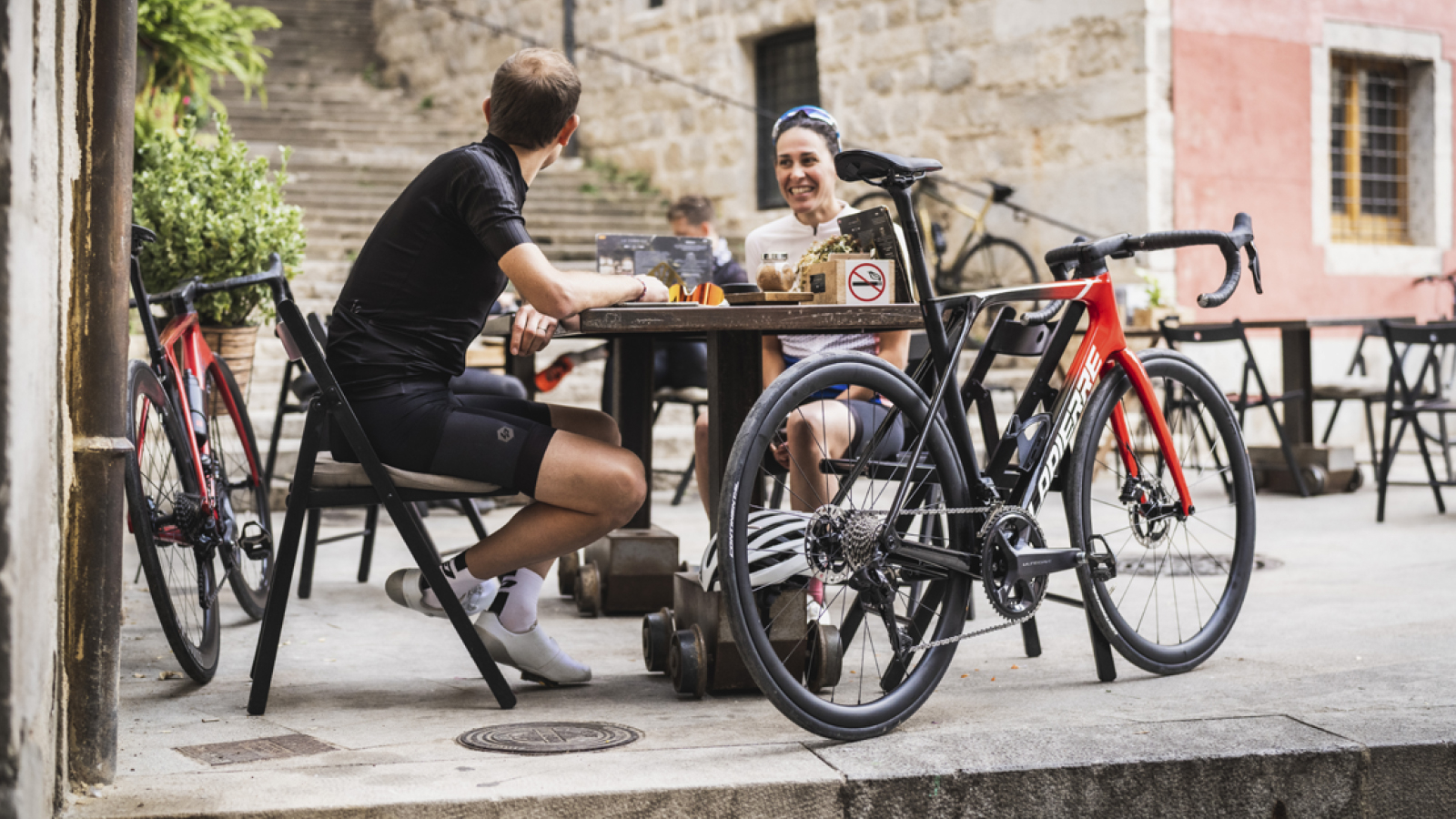
Sociability
Road riding’s renowned for its cafe stops, and if you’re the right kind of riders on the right kind of roads, you can while away hours two-abreast on a stream of companionship that’s part free-flow musings, part setting the world to rights and part harmonious silences.
On singletrack, you won't be chatting away two abreast but mountain biking does lend itself to an agreeable level of hanging about with mates - pre-ride faffing, post-ride faffing, waiting at the tops or bottoms of hills, trail center segments, watching each other try ridiculous moves, that kind of thing.
Winner: Mountain biking. Especially for the way it lends itself to weekends away.
Expense
Hmm, getting started in mountain biking and road riding is probably about the same cost, in that you can have a year of fun on a rig costing anywhere from $600 to $10,000. And the range of prices for parts is pretty similar.
But you might start to feel the upgrade twitch sooner on a mountain bike since it’s easier to push your bike and its components to their limits. And, without wanting to jinx you, you’re more likely to smash something off-road.
If you want to burn money on either sport, the great news is there’s literally endless opportunity, like buying the best lightweight mountain bikes under 10kg. However, there are also plenty of options if you're looking for the best budget mountain bikes. And on the parsimonious side of the coin, we all know someone who could cheerfully whip us on their 2003 runabout that hasn’t had a new chain for a decade.
Winner: Road riding, theoretically. You might be able to keep the cost down through careful cleaning and maintenance. But this is also a world where some see $2,000 wheels as entry-level.
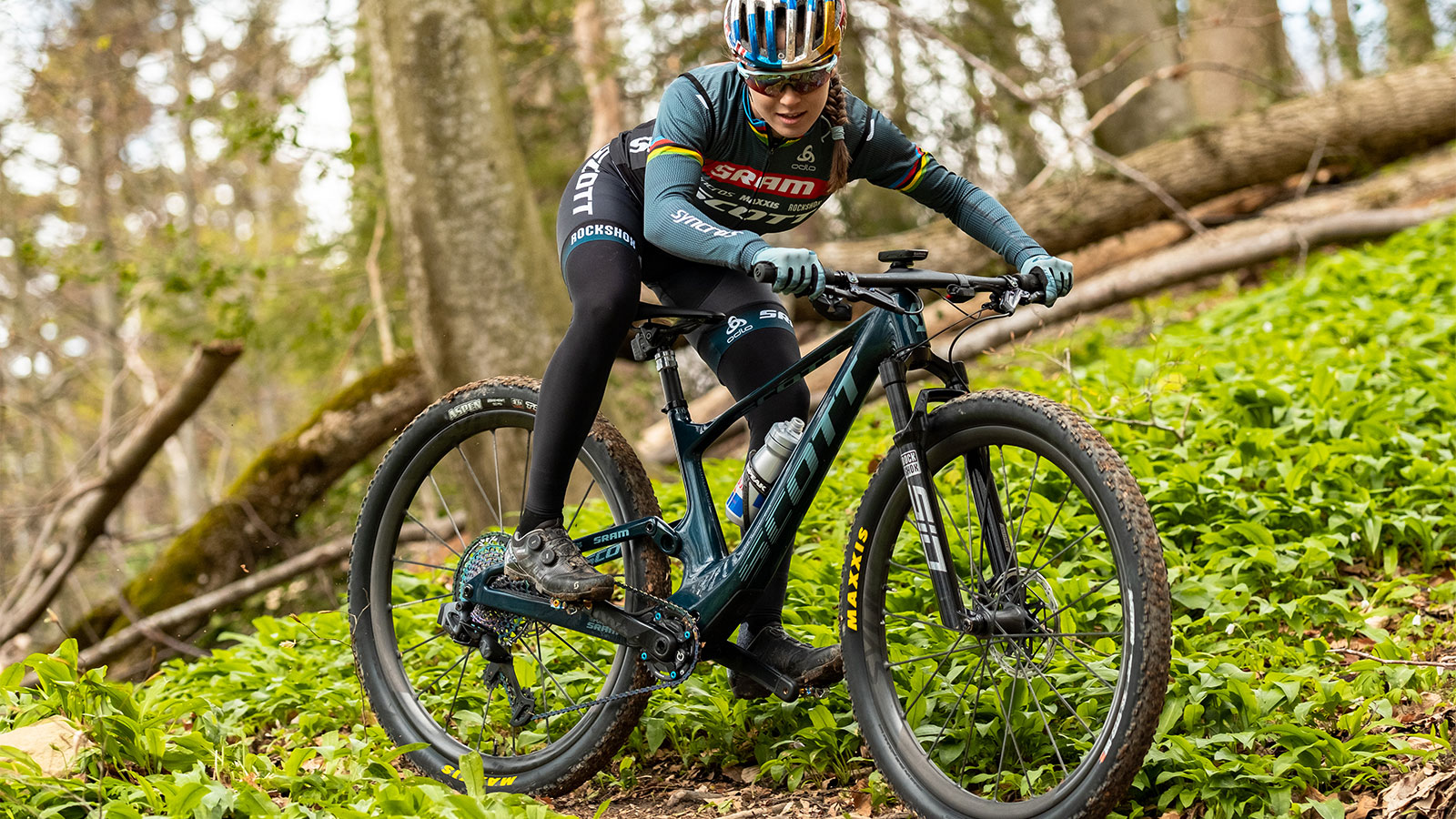
Tech
In the muddy corner: suspension embedded in frames, brain suspension, frame design that becomes rowdier and yet more precise at the same time.
In the lycra corner: $400 jockey wheels.
In both corners: carbon frames that weigh less than a full water bottle, e-bikes that are progressing faster than phones, 12 speeds – no, 13 speeds, brilliant GPS, amazing bikepacking gear.
Winner: Mountain biking. For tech that you can really feel
Hassle
At least the hassle of mountain biking makes you stay out longer. If you’re going to have to clean and lube your rig after almost every ride, and (unless you're lucky) travel to even get there, you might as well stay out there twice as long, right?. Unless your brakes and cogs fail from all the grit.
Road riding (unless you’re unlucky), you can do from your door. You take your nice bike when it's dry and your mudguard bike when it’s wet, and you might need to replace your drivetrain and your brake pads almost never. Then again, even the slightest bike noise can bring a road rider out in hives, while that’s just par for the course on an MTB.
Winner: Road riding. But who wants an easy life.
And look at that: mountain biking is officially better than road riding, but it’s very close, with four wins compared to three, and one dead heat. Road riders, mountain bikers, and everyone in between, we salute you all.
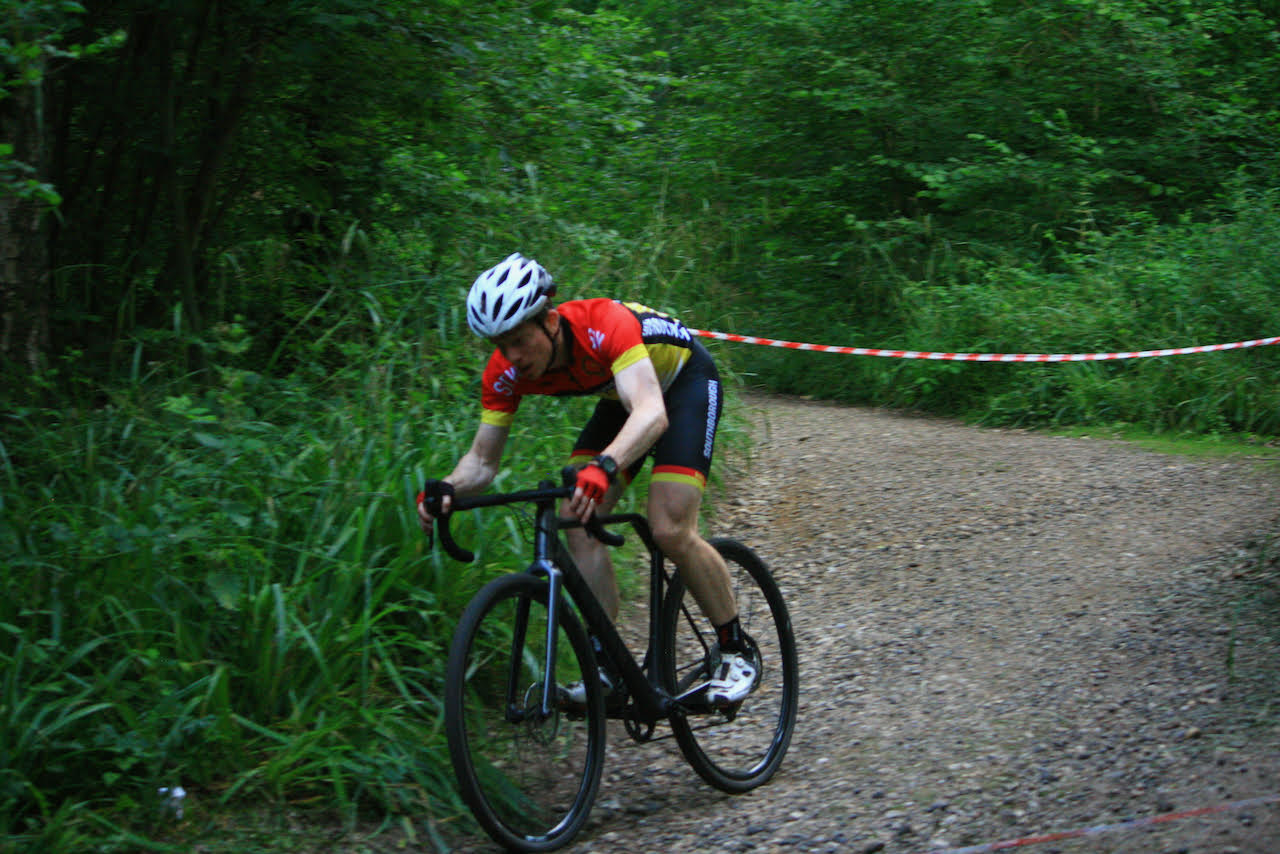
Sean has old school cycle touring in his blood, with a coast to coast USA ride and a number of month-long European tours in his very relaxed palmares. Also an enthusiastic midpack club cyclocross and XC racer, he loves his role as a junior cycle coach on the Kent/Sussex borders, and likes to squeeze in a one-day unsupported 100-miler on the South Downs Way at least once a year. Triathlon and adventure racing fit into his meandering cycling past, as does clattering around the Peak District on a rigid Stumpjumper back in the day.
Height: 173cm
Weight: 65kg
Rides: Specialized Chisel Comp; Canyon Inflite CF SLX; Canyon Aeroad; Roberts custom road bike
